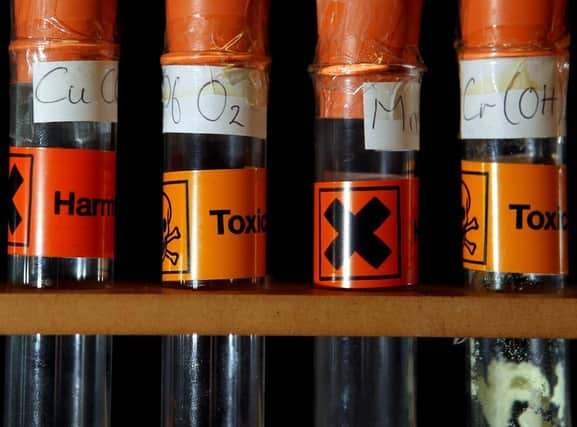Readers' letters: UK could become a chemical dumping ground


The UK Government recently published a policy paper setting out how its approach to regulating hazardous chemicals will diverge from the EU’s REACH chemical safety regime, which no longer applies in the UK after Brexit.
Of ten potentially hazardous chemicals that were added to an EU’s watchlist of “substances of very high concern” (SVHCs) during 2021, only four will be considered for inclusion in an equivalent UK list. This not only represents a major weakening of the UK’s post-Brexit safety regime, weakening protections against harmful substances, but will allow potentially toxic chemicals to slip through the next.
Advertisement
Hide AdAdvertisement
Hide AdWith British consumers and the environment having greater exposure to harmful chemicals than in the EU, a second-rate system for regulating chemicals post-Brexit is emerging. Also to be noted is that under post-Brexit legal arrangements this is not subject to public consultation and will not require a vote in Parliament.
As predicted, the protections that UK citizens formerly enjoyed as EU members in this and many other areas are gradually being eroded.
Alex Orr, Edinburgh.
City Plan won’t deliver enough homes
Since it was reported that soaring house prices and high rents have made it nearly impossible for first time buyers in Edinburgh to enter the housing market (News, 8 December), trade body Homes for Scotland (HFS) has expressed serious concerns that the proposed City Plan will fail to deliver the much-needed homes of all tenures that our capital city requires.
Edinburgh’s City Plan should be founded on a strong understanding of housing need and demand in the city, with the most sustainable and deliverable sites identified to meet that need and demand.
Advertisement
Hide AdAdvertisement
Hide AdInstead, it appears to be based on an ideological desire not to release any further greenfield land for housing, irrespective of the implications that will have.
This has resulted in significant amounts of brownfield land currently in productive use by Edinburgh businesses being earmarked for housing, with little consideration of the disruption this will cause for those businesses and no guarantees that the land will actually become available for new homes.
Even if the council was ready and willing to go ahead with an unprecedented and costly programme of buying up this land and relocating the businesses that are currently using it, it would not be possible to build the number of homes on these sites that the council is claiming within the plan period. The practical implications of the council’s preferred strategy are just too complex for that.
It is imperative that Councillors fully understand the implications of the policies and sites that are being proposed, including their impact on those in need of a new home in Edinburgh, otherwise housing inequality in the city will continue to grow.
Tammy Swift-Adams, HFS Director of Planning, Edinburgh.
Hospitals come first
Advertisement
Hide AdAdvertisement
Hide AdRegarding complaints about the measures taken by Holyrood to mitigate the effects of Covid in its successive varieties.
No-one can doubt that the profits of the hospitality and other service industries suffer and that families are disappointed, but can there be any serious case for giving priority to these interests over the need to save lives in over-stretched hospitals?
James Scott, Edinburgh.
Comment Guidelines
National World encourages reader discussion on our stories. User feedback, insights and back-and-forth exchanges add a rich layer of context to reporting. Please review our Community Guidelines before commenting.